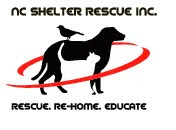Most of us live in a world with rose colored glasses, we
think for the most part that the rest of the people around us are living the
most honest life they can. One would even think in a North Carolina Animal
Shelter that before we give an animal the “ needle of death ” that all attempts
have been made to reunite this animal with their previous owner. Sorry to disappoint
you but that is just not the case in most North Carolina Animal Shelters or
even your local Veterinarians Offices.
Believe it or not but most North Carolina County Animal Shelters,
Animal Control Officers and even you own local Veterinarian Office does not own
or have on hand a microchip scanner.
We hear all the time, please microchip your family pet in case
it’s gets lost, but what good does it due to microchip your family pet if those
who are most likely to be in possession of your lost pet ( i.e. a local NC
County Animal Shelter) doesn’t even have a microchip scanner on hand, their
truck or at the main Shelter?
Until we join hands and voice our concerns to the NC General
Assembly this will not change. What can you do today as just an individual citizen?
Email, write, fax or even call your local State Legislators and tell them to amend
the current law (130A-192) and require all NC Shelters to have no less than 1 microchip
scanner on hand at all times and change the wording of “ may scan ” to all employees must be
required to scan all animals prior to intake along with a second scan prior to euthanasia.
It’s the least we can do to try and bring positive change
into our Sheltering System, after all most microchip scanner companies will
provide a “ free” scanner for their use. So why do we not have a microchip
scanner present at all North Carolina Animal Shelters to help cut down on the useless
euthanize rate but to also reunite families with their long lost family pet? In
North Carolina we are simply just “ Too Quick to Kill ” and it’s time we stop
looking for excuses to kill. Every life has value and it’s not ours too choose
without every precaution being made that we have tired our best to reunite an
animal with this owner.
North Carolina General Statute 130A-192:
(a) The Animal Control Officer shall canvass the county to
determine if there are any animals not wearing the required rabies vaccination
tag. If an animal required to wear a tag is found not wearing one, the Animal
Control Officer shall check to see if the owner's identification can be found
on the animal. If the animal is wearing an owner identification tag with
information enabling the owner of the animal to be contacted, or if the Animal
Control Officer otherwise knows who the owner is, the Animal Control Officer
shall notify the owner in writing to have the animal vaccinated against rabies
and to produce the required rabies vaccination certificate to the Animal
Control Officer within three days of the notification. If the animal is not
wearing an owner identification tag and the Animal Control Officer does not
otherwise know who the owner is, the Animal Control Officer may impound the
animal. The duration of the impoundment of these animals shall be established
by the county board of commissioners, but the duration shall not be less than
72 hours. During the impoundment period, the Animal Control Officer shall make
a reasonable effort to locate the owner of the animal. If the Animal Control Officer
has access at no cost or at a reasonable cost to a microchip scanning device, the Animal Control Officer may
scan the animal and utilize any information that may be available
through a microchip to locate the owner of the animal, if possible. If the animal
is not reclaimed by its owner during the impoundment period, the animal shall
be disposed of in one of the following manners: returned to the owner; adopted
as a pet by a new owner; sold to institutions within this State registered by
the United States Department of Agriculture pursuant to the Federal Animal
Welfare Act, as amended; or put to death by a procedure approved by rules
adopted by the Department of Agriculture and Consumer Services or, in the
absence of such rules, by a procedure approved by the American Veterinary
Medical Association, the Humane Society of the United States or of the American
Humane Association.
How to contact your North Carolina General Assembly Members:
http://www.ncleg.net/representation/WhoRepresentsMe.html
http://www.ncleg.net/representation/WhoRepresentsMe.html



No comments :
Post a Comment